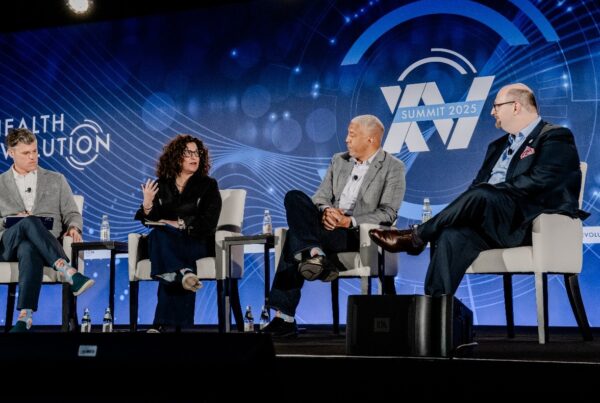American Health Care Cities is a new recurring feature at Health Evolution examining the health care market in different cities and regions across the country. How does the health care industry vary across this country? How does it look the same? What are the opportunities and challenges in each city? We’ll be talking with key leaders in some of the most active health care cities in America to better understand if health care, as they say, is truly local.
First up: Nashville, Tennessee.

Unsplash/Lauren MacNeish
City: Nashville, Tennessee
Metro area population: 1.95 million
Health care economic benefit: $46.7 billion, 270,000 jobs
Number of companies: 500+, including 16 publicly traded organizations
Interviewee: Hayley Hovious, President of the Nashville Health Care Council
Here’s a surprising statistic about Nashville: Music comprises approximately $10 billion of the city’s economy but health care accounts for $46 billion. Enough health care innovation is happening in Music City, in fact, that Nashville Health Care Council President Hayley Hovious likens its history, development and current status to Silicon Valley.
A Nashville native, Hovious has served in that capacity since June of 2015. Prior to joining NHCC, she was Executive Director of the Council Fellow, which educates senior health care executives, a Trade Director and the Tennessee Department of Economic and Community Development. Hovious also worked as a Marketing Manager for software startup Consensus Point and a brand manager at E.J. Gallo Winery, among others.
Health Evolution interviewed Hovious about Nashville’s history, challenges, prominent organizations, and how she is anticipating the city’s health care businesses will emerge from the COVID-19 pandemic.
How has Nashville evolved as a health care market?
Hovious: The Nashville health care industry started when HCA was founded about fifty years ago. In fact, they just have their 50th anniversary in the last three years. That founding was really the start of the Nashville health care industry. The industry in Nashville grew much the same way Silicon Valley grew over time. You had that reinvestment by the people who founded the industry into other businesses. The people from HCA started the Health Trust Purchasing Group and that becomes a huge business as well.
You see things happening here that are very similar to Silicon Valley. Over time that creates this huge ecosystem. For many years, it was different models and health care services. The ambulatory surgery center model as a viable business began here in Nashville.
There’s a lot of rubber meets the road in health care in Nashville. Huge companies are headquartered here that have facilities all over the country. And when you think about it from that perspective that means we have a ton of purchasing power here and we also have a ton of data. And I think it’s still up for grabs and trends with how that data gets used most effectively. But you can imagine the clinical data here is just incredibly deep when you’re talking about so many different health systems. Vanderbilt has the largest genomic database in the country and that’s funded by the NIH. They have over a million patients in it and they’re pairing the genomics data with the clinical data.
What are some of the big challenges facing organizations in the Nashville health care market?
Hovious: Change management. You’ve got so many companies here that are in the direct provision of care for patients that people don’t adopt technology as quickly as we’d like. That’s a real challenge for systems everywhere to overcome even if you have the best system and have a pandemic to move things along.
But from Nashville’s perspective in the last ten years, what I’d say is there a lot more emphasis on the tech-enabled services. Nashville is good at understanding how care is delivered and then [finding] a much more efficient way of delivering that care. And then finding our unmet needs in the market. Senator Bill Frist along with Brad Smith, who was most recently running CMMI, started a company called Aspire Health that was really focused on palliative care and it was a tech-enabled model and had a very strong tech platform but then it also met an unmet market need at the time. You’re seeing more and more of that just because there’s such a deep understanding of health care delivery and a focus on the patient.










